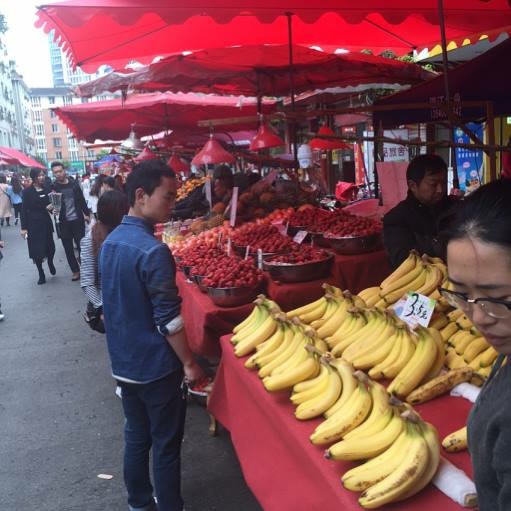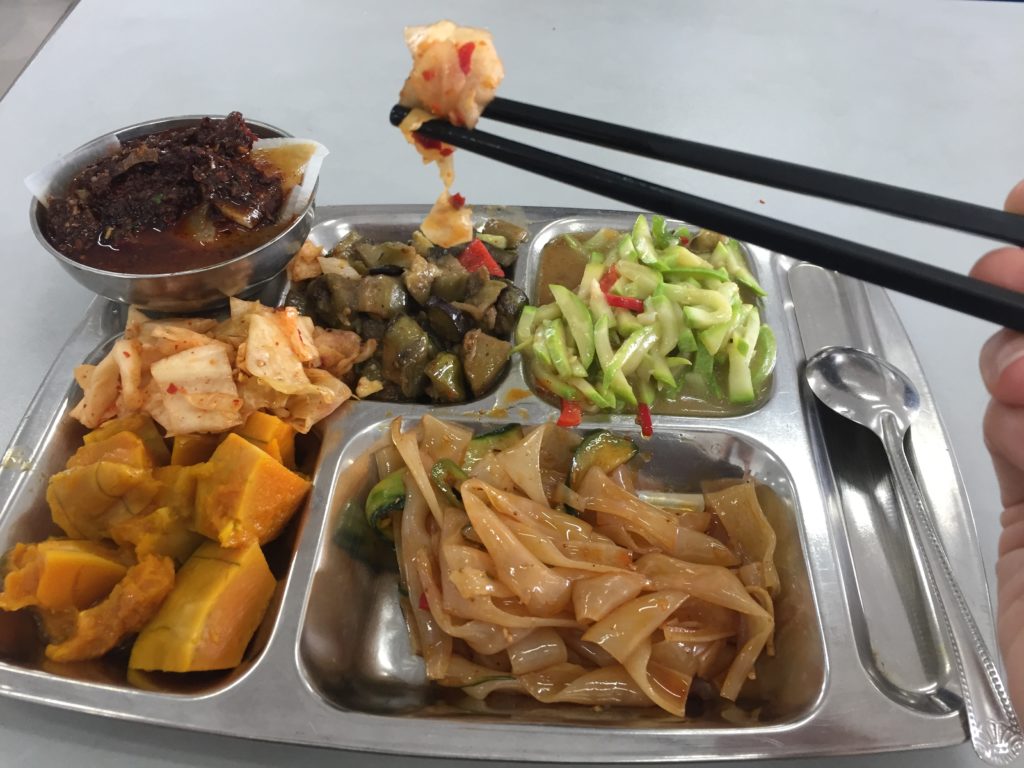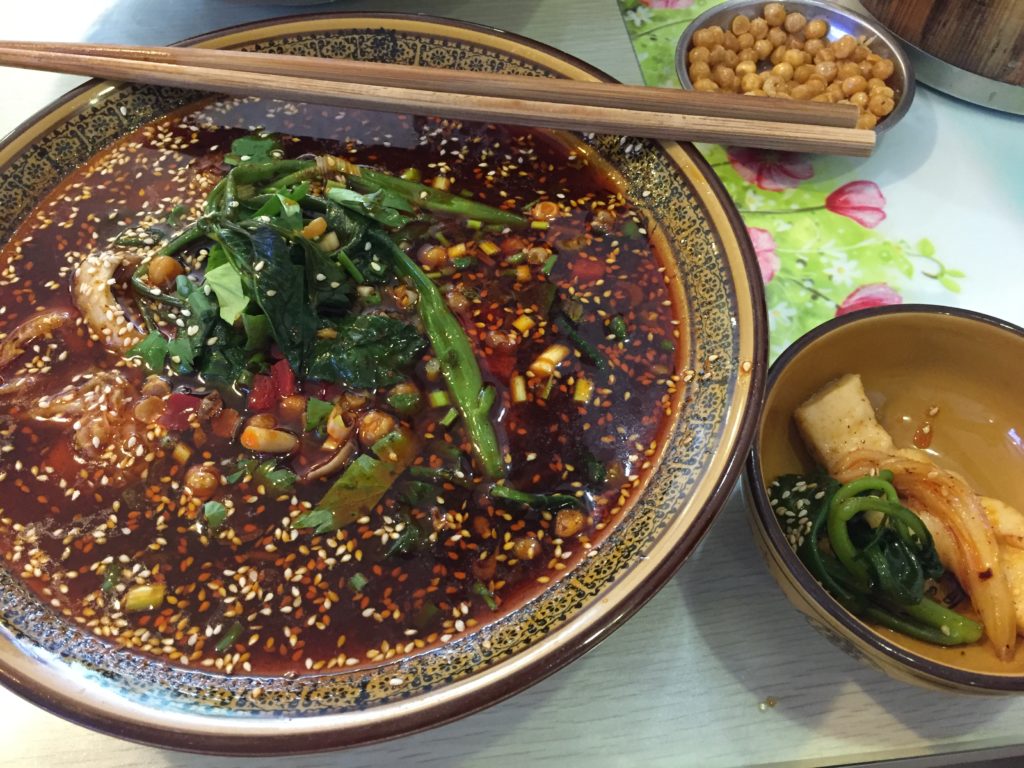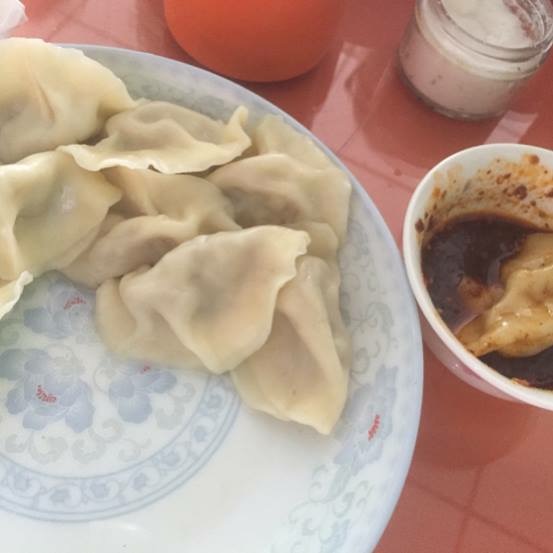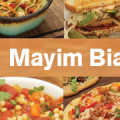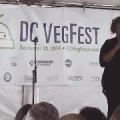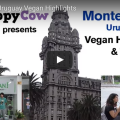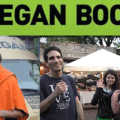As a China 22 (the cohort year) United States Peace Corps Volunteer, I knew that being vegan in another country would sometimes be tough. The first thing we do here in China is live in a hotel where breakfast is provided, and I ate most of my calories during morning meals during that time. In the beginning, due to culture shock and language barriers, I was afraid to venture outside of the hotel for food. I even contemplated forgoing veganism for a while to completely embrace the food culture and stop worrying so much about what was on my plate.
After moving in with my host family and simply feeling sick from consuming food cooked with animal products, (I simply picked out the vegetables) I realized that culture or not, it wasn’t for me. Not only did I feel awful, the guilt sat on me like a blanket. I guess once you go down a path of an ethical nature, it’s hard to stray, and I’m happy about that.
I’ve always enjoyed junk food, but I’m a healthy food girl at heart, and I had to return to a whole food plant based diet just to keep my energy levels up. Of course, I had other issues like Vitamin D, protein, and B12. The Peace Corps medical team provided me with B12 vegan supplements, but not until after I developed a deficiency, and Vitamin D isn’t registered as required with the home office, and nothing I eat in China is fortified with Vitamin D. It just meant I had to soak up more sunlight everyday, which as a teacher who is in class or office hours most days, seemed impossible, until I made it a priority to spend at least an hour everyday outside. It doesn’t all have to be at one time, but I do make sure to get at least an hour of sun every single day. I also made sure to keep protein levels high by eating a lot of tofu! Once I got to my actual site three months in, I was finally able to cook in my own kitchen and not rely on an omnivorous family for my daily food. I will say, though, that living with that family helped me adapt to food schedules and opened my eyes to all sorts of new vegetables and cooking styles I never would have experienced otherwise.
There are things we take for granted in the west. We forget that starvation and malnutrition are not the same thing. Because so many of our cereals, milks, yogurts, etc. (vegan or not) are fortified, we forget entirely that the base product for the delivery of these secondary substances do not actually contain these vitamins and minerals. It can be tricky when living as an expat. One has to rethink all aspects of diet and start from nutrition education scratch. Without B12 supplements and fortified foods, I was malnourished. I began experiencing muscle twitches, fatigue, and even passed out in class one day. It was clear I had to revamp my diet. I wasn’t starving, but I was malnourished.
The first thing I did was add a B12 supplement from Peace Corps medical. (As a traveler or expat, you can bring these with you or order online.) It was an immediate need that begged to be addressed, and after research and discovery, I requested the vitamins from my doctor. She immediately exclaimed that I should have been taking the supplements since arrival. Because I had planned on being more “adventurous” in my eating, the medical office didn’t mark me as vegan until much later and my dietary needs were left out of much of my medical paperwork. It is a mistake I wouldn’t make again!
After my actual deficiencies were addressed, I began the research it would take to stay healthy for the two years of PC service. I found multiple outdoor markets near my school with seasonal vegetables and upon further exploration, fresh fruit stalls as well. I have located a grocer that sells out-of-season fruits and vegetables that I occasionally visit when I’m bored or food choices are lacking, but with the exorbitant cost, I tend to stay local and fresh. In the colder months I eat a great deal of gourd, potato, and squash, as well as bok choy, mushrooms, and corn. I can make an amazing vegan corn chowder or vegan mushroom lemon noodle soup! Fruits tend to be oranges, apples, and bananas. In the warmer months, tomatoes, spinach, eggplant, bitter melon, and many others end up filling the stalls and are surprisingly cheap. Seasonally, strawberries, cherries, mangoes, watermelons, peaches, pomegranates, and grapes all make appearances and I eat a lot of them! The trick is to notice price dips and surges to identify what exactly is in season. If something begins to rise in price, that means it’s ending its season. I know it sounds so simple, but it really does make a huge difference in quality and freshness of produce, and eating seasonally is all about freshness!
Another thing I broke down and did was to purchase dry goods off Taobao. It’s basically the Chinese version of Amazon and has available food products for sale for much cheaper than western stores. I purchase things like dried garbanzo beans and quinoa off Taobao. These things last in my kitchen and I tend to use them to supplement fresh ingredients, especially in the colder months. Quinoa and garbanzo beans were an effort to increase my protein. When I got to site, I began working out more and more and needed protein to build muscle tissue. Plant-based proteins weren’t very varied here, and this helped me expand my arsenal. Other items I buy off Taobao are lentils, nuts, seeds, dried fruits, and brown rice (as an aside, my mom was amazed that there is no brown rice for sale in China. It’s here in specialty stores, but it is EXPENSIVE.)
So now that you know what’s in my kitchen, let me introduce you to eating out. I am a financially strapped volunteer, so I tend to eat at my campus canteen quite often. If this is an available option for you, I highly recommend it. They usually have vegetable dishes separated from meat dishes and there are often quite a few of them!
Restaurants can be the only option, though, and that can be tough. Honestly, even if you tell the wait staff you want a su cai (vegetable dish), you will sometimes get an all vegetable dish with meat as a “garnish” atop it “for flavor.” I cannot tell you how many times this has happened to me. The alternative is to never eat out OR to get on HappyCow and look for vegan restaurants around the city you are in.
Of course, not all cities have established HappyCow sites, but there is a network here in China desperately trying to expand the database. The best bet is to eat at Buddhist restaurants. Nearly all of them are vegan and don’t use strong flavors such as onion or garlic. Every city and town in mainland China has a plethora of Buddhist restaurants and buffets for very decent prices. There is a vegetarian jiaozi (Chinese dumplings) restaurant right outside my school that I eat at all the time and there’s a Buddhist buffet a short bus ride away. It’s made eating out fun.
There are ways to try local Western cuisines without stepping over boundaries of ethics or health as well. If you will eat oil, there are Buddhist Hot Pot restaurants and street food often includes skewers of vegetables. There are juice bars, tea shops, and cafes in the cities where one can find coffee or teas that don’t use milk. Even a lot of ice creams here are dairy free. Ultimately, avoiding meat is more difficult than avoiding dairy.
There is no word in Mandarin for “vegan,” or even “vegetarian.” I know people who say they are Buddhist to get their point of a no-meat diet across, but I find this practice disrespectful, so instead, I use a few key phrases to explain my lifestyle.
Helpful phrases:
- “Wo bu chi rou!” (I don’t eat meat.)
- “Wo bu chi ji dan!” (I don’t eat eggs)
- “Wo bu he nai!” (I don’t drink milk)
- “Wo bu he haishi chi suan nai!” (I don’t drink or eat yogurt)
I make sure to explain to every one of my classes that I do not eat these things. I tell them in English (I am an English and culture teacher at the university level) and in Mandarin (they giggle and become super engaged when I use their standard language) so I am sure they understand. Often, they have questions. They wonder at my motivation, whether I am healthy, and question the ethics behind my decision. That’s okay. I’m used to calmly and without pressure explaining the ethics and nutrition of my lifestyle. I’ve never been one to push my morals onto another, but I gladly share my experience and lifestyle with those who ask. I’ve always been a, “lead by example,” sort of person, and it’s served me well here in China. I’ve even gotten a few students telling me they’ve either cut down or cut or certain animal products from their diet! I see that as a win-win!
The moral of this story is that keeping to one’s ethics isn’t impossible here in China and shouldn’t deter anyone from traveling here and experiencing the amazing local culture! If you ever find yourself in Chengdu, send me a message! I would be happy to meet up at one of my favorite vegan spots!
If you are interested in following me on Instagram, my handle is @mlstoever, and my vegan posts can be found by searching #AVeganPCVinChina

